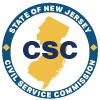FIELD REPRESENTATIVE DISEASE CONTROL DEFINITION:
Under direction, conducts various inspections, investigations, and surveys pertaining to the control and reporting of tuberculosis and communicable and venereal diseases; does other related duties as required.
NOTE: The examples of work for this title are for illustrative purposes only. A particular position using this title may not perform all duties listed in this job specification. Conversely, all duties performed on the job may not be listed.
NOTE: Appointments may be made to positions requiring bilingual skills.
07625 - Bilingual in Spanish and English SPECIAL SKILL Applicants must be able to read, write, speak, understand, or communicate in Spanish and English sufficiently to perform the duties of this position.
EXAMPLES OF WORK:
Performs field work required to promote objectives of the public health program.
Conducts selective serologic, epidemiologic, and other public health surveys and followup activities.
Compiles data obtained and develops final determinations and evaluations.
Confers with physicians, patients, disease contacts, and local government officials and their representatives in preparing case histories, reports, and other data, and supporting, diagnostic, or reported vital statistics information.
Conducts investigations of reportable diseases and maintains liaison with hospitals, registrars, the State Department of Health, physicians, local health departments, and other cooperating agencies.
Makes presentations to interested groups and/or instructs them on how to improve reporting techniques and accuracy of reports.
Prepares clear, accurate, and informative statistical and other reports and memoranda containing findings, conclusions, and recommendations.
Institutes required control measures.
Conducts investigations of any unusual manifestations of diseases not listed as reportable in the State Sanitary Code, and reports all findings to the State Department of Health.
Disseminates to physicians and responsible agencies information relative to the outbreak of diseases.
Maintains surveillance of carriers of causative agents of diseases.
Inspects records of dealers in pestilence birds.
Analyzes reported data to provide a basis on which to plan and evaluate an effective program for the prevention and control of infectious diseases and the prevention or eradication of tuberculosis and venereal diseases.
Conducts investigations of diagnosed cases of tuberculosis to ensure effective isolation and treatment and to identify household and other close contacts.
Ensures that tubercular contacts, suspects, and tuberculin reactors are brought to examination and diagnosis.
Promotes and provides prophylactic treatment of tuberculosis cases.
Collects current data and reports all significant findings of cases, contacts, and changes to the Case and Contact Register.
Ensures continuous medical supervision and treatment of cases of active tuberculosis, by providing public health nursing supervision and instructions to tuberculosis patients at home.
Ensures supervision of all cases of inactive tuberculosis for a period of five years.
Ensures appropriate handling of recalcitrant tuberculosis patients through the use of quarantine and commitment procedures.
Cooperates with the State Department of Health in the control of syphilis cases.
Contacts suspects and associates.
Interviews gonorrhea and other venereal disease patients for contacts and suspects.
Ensures the diagnosis and treatment of venereal disease patients.
Visits homes where accidental poisoning has occurred and provides information, suggestions, and advice to prevent such accidents from reoccurring.
Takes blood pressure and performs destrostix finger prick tests for the determination of diabetes on all interested citizens appearing at various health clinics or programs.
Attends and conducts hypertension and diabetes screening programs at local health fairs.
Participates in conducting followup procedures on all persons tested and found to have abnormal results by telephoning individuals to be sure that they have been in touch with their physicians concerning test findings.
Provides educational materials and information to individuals tested in the chronic disease detection program.
Maintains records and files.
Will be required to learn to utilize various types of electronic and/or manual recording and information systems used by the agency, office, or related units.
REQUIREMENTS:
NOTE: Applicants must meet one of the following or a combination of both experience and education. Thirty (30) semester hour credits are equal to one (1) year of relevant experience.
Four (4) years of professional experience in conducting public health investigations or inspections.
OR
Possession of a bachelor's degree from an accredited college or university.
NOTE: "Professional experience" refers to work that is analytical, evaluative, and interpretive; requires a range of basic knowledge of the profession's concepts and practices; and is performed with the authority to act and make accurate and informed decisions.
LICENSE:
Appointees will be required to possess a driver's license valid in New Jersey only if the operation of a vehicle, rather than employee mobility, is necessary to perform the essential duties of the position.
KNOWLEDGE AND ABILITIES:
Knowledge of local and state health laws and standards.
Knowledge of problems and procedures involved in investigating sanitary conditions and of the philosophy of maintaining public health standards.
Ability to interview persons of varying backgrounds. Ability to comprehend established rules and regulations.
Ability to use tact and courtesy in making investigations.
Ability to observe and analyze significant conditions.
Ability to prepare reports.
Ability to maintain essential records and files.
Ability to utilize various types of electronic and/or manual recording and information systems used by the agency, office, or related units.
Ability to read, write, speak, understand, and communicate in English sufficiently to perform the duties of this position. American Sign Language or Braille may also be considered as acceptable forms of communication.
Persons with mental or physical disabilities are eligible as long as they can perform the essential functions of the job after reasonable accommodation is made to their known limitations. If the accommodation cannot be made because it would cause the employer undue hardship, such persons may not be eligible.

